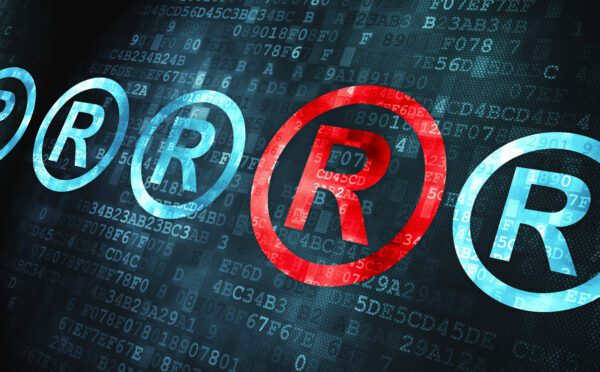Authors
Ottawa Managing Partner, Ottawa
Partner, Intellectual Property, Toronto
In 2017, Canada introduced its certificate of supplementary protection (CSP) regime, providing a form of patent term extension for pharmaceutical patents. In 2020, the Federal Court interpreted CSP protection broadly, in favour of protection where, in contrast, it had been denied in similar circumstances in the European Union (EU).
In its April 2021 decision in Canada (Health) v. Glaxosmithkline Biologicals S.A., 2021 FCA 71 (GSK Biologicals), the Federal Court of Appeal (FCA) has weighed in, finding that the narrower scope that the Minister of Health had imposed on CSP protection is reasonable and should not have been disturbed. This latest decision affirms that the Minister is afforded deference in setting CSP policy, provided the Minister’s position is contextually justifiable. The Minister’s CSP decisions will consequently be more difficult to challenge, both for CSP applicants and for CSP challengers in the context of patent actions.
CSPs – A short history
The FCA’s decision in GSK Biologicals involves interpretation of subsection 3(2) of the Certificate of Supplementary Protection Regulations, S.O.R./2017-165 (CSP Regulations). The CSP Regulations allow for the granting of a CSP, which provides up to two years of additional patent-like protection for eligible drug products in order to partially compensate for time spent in research and in obtaining market authorization. While such supplementary protection has been in place in Europe for decades, prior to the Canada-EU Comprehensive Economic and Trade Agreement (CETA), Canada had never previously recognized any form of patent term extension.
The current Canadian regulatory regime was developed in consultation with the European Union[1] and is modelled on the European framework. The CSP Regulations are intended to both comply with Canada’s obligations under CETA and to maintain a long-standing Canadian policy of striking a balance between pharmaceutical innovation and affordable access to pharmaceuticals.
As we have commented previously,[2],[3] in considering whether CSPs should be granted, the Federal Court recently appeared to endorse a broader interpretation of CSP protection than in the EU, despite the protection being put in place as a trade obligation to the EU. The fact that the EU did not recognize protection in similar circumstances was not squarely addressed in Federal Court decisions considering the matter, putting Canada’s framework at odds with the very framework upon which it had been based.
In Glaxosmithkline Biologicals SA v Canada (Health), 2020 FC 397 (the decision under appeal in GSK Biologicals), the Minister of Health had refused to issue a CSP to Glaxosmithkline Biologicals SA (Glaxo) in respect of a vaccine (including an antigen and an adjuvant) against shingles and the associated Canadian patent (directed to the antigen only).[4] In providing reasons for the refusal, the Minister explained that adjuvants are not considered to be medicinal ingredients, which led to ineligibility for the CSP. The Federal Court found that the Minister’s interpretation of the term “medicinal ingredient” under the CSP Regulations was unreasonable and therefore it was unreasonable to deny CSP protection for a patent covering the combination of an antigen and adjuvant.[5] However, the Court of Justice of the European Union came to the opposite conclusion on the same facts.[6]
In GSK Biologicals, the Federal Court of Appeal has now reversed the Federal Court, placing CSP policy squarely in the hands of the Minister, whose interpretation was considered reasonable in light of its broader regulatory policies pertaining to vaccine ingredients and in light of CETA, taking into account the EU approach to similar protection.
The EU approach directly supported the finding that the Minister’s approach is reasonable
To support her position, the Minister relied on her scientific expertise regarding the meaning of the term “medicinal ingredient,” noting that her position was in line with broader Health Canada policy, treatment of the same product for all other regulatory purposes, and the approaches of organizations directed to international harmonization on these issues. Glaxo relied on the fact that the patented ingredient, an adjuvant, must be considered “active” because it contributes to biological activity. Faced with competing interpretations, the FCA considered it appropriate to assess whether the Minister’s approach was consistent with CETA. Recognizing that the Minister is entitled to a measure of deference, the FCA sounded a note of caution in undertaking this further assessment:
[51] That said, one should be careful not to put aside a regulator’s interpretation of a term that is used across the regulatory system dealing with pharmaceutical products, albeit for a variety of purposes, solely because of a seemingly logical alternative interpretation. This is so unless there is some clear indication that the words can and should be construed in a specific manner, at least in the context of the CSP Regulations, because of CETA.
After finding the wording in CETA itself to not be particularly illuminating, the FCA turned to the jurisprudence of the European Court of Justice, interpreting the scope of protection in the EU. In doing so, the FCA sounded a second note of caution regarding reliance on foreign authorities:
[58] This similarity in interpretation is relevant to determine the reasonableness of the Minister’s decision for, as mentioned, the Canadian case law on the meaning of “medicinal ingredient” had yet to provide a sufficiently precise answer in this respect. I agree with the parties that one must be cautious in using foreign case law, but in this particular case, I find it persuasive based on its reasoning.
The FCA then observed that the Minister’s approach is consistent with the European Court of Justice’s approach and hence with CETA. In making this observation, the FCA was careful to clarify, in light of the deference afforded to the Minister that
- consistency does not mean that the Canadian system must be identical to the system that was already in place in the European Union; and
- nor should it be inferred from these reasons that foreign case law binds Canadian courts in any way.
The FCA was prepared to accept that the term “medicinal ingredient” in the CSP Regulations (based on the term “active ingredient” in CETA) is capable of more than one possible reasonable interpretation, and it is not for the reviewing courts to choose the one they prefer or find most logical. The standard of review does not permit interference to this degree.
Future implications
In the first two Federal Court decisions addressing CSPs, a strong signal had been sent to the Minister that it would be given very little latitude to establish policy regarding the scope of CSP protection. GSK Biologicals reverses this trend, affirming that the Minister is afforded deference in setting CSP policy, provided the Minister’s position is justifiable taking into account regulatory, scientific and CETA context.
The direct implication of GSK Biologicals is that it will be more difficult to challenge the Minister’s CSP decisions, both as a CSP applicant or as a CSP challenger in the context of a patent infringement or impeachment action. In view of the EU’s several decades of experience addressing these issues, parties advocating before the Minister or the court would be wise to rely on consistency of their position with EU jurisprudence to advance their cause.
[1] Regulatory Impact Analysis Statement, Certificate of Supplementary Protection Regulations, Canada Gazette Part II, Vol 151, Extra, online: https://gazette.gc.ca/rp-pr/p2/2017/2017-09-07-x1/pdf/g2-151×1.pdf#page=1.
[2] Bradley White, Nathaniel Lipkus and Jaymie Maddox, “Canadian court interprets CETA drug patent extensions more broadly than EU equivalent” (24 April 2020), online: https://www.osler.com/en/resources/regulations/2020/canadian-court-interprets-ceta-drug-patent-extensions-more-broadly-than-eu-equivalent.
[3] Bradley White and Nathaniel Lipkus, “Canadian courts are interpreting supplementary pharmaceutical patent protection more broadly than their EU counterparts” (24 February 2021), online: https://www.osler.com/en/resources/regulations/2021/canadian-courts-are-interpreting-supplementary-pharmaceutical-patent-protection-more-broadly-than-th.
[4] Canadian Patent No. 2,600,905 and the drug SHINGRIX.
[5] Glaxosmithkline Biologicals SA v Canada (Health), 2020 FC 397 at paras 43, 46.
[6] Glaxosmithkline Biologicals SA v Comptroller-General of Patents, Designs and Trade Marks, [2014] RPC 17.

